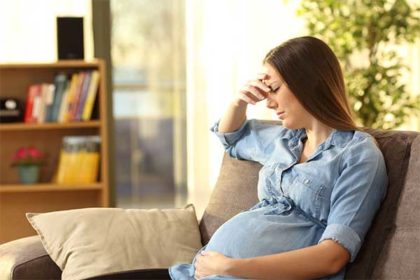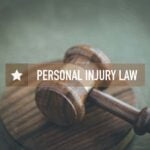Pregnant Women Face Unique Risks When in a Car Accident

Being in an auto accident is dangerous and terrifying for anybody, but even more so if you are pregnant. The risks involved increase even when the crash isn’t considered to be serious. Pregnant women involved in a car accident not only have to worry about their own injuries but also the very real possibility of immediate harm that their unborn child may have suffered.
With as many as 5,000 fetal deaths attributed to crash related trauma and injuries every year, the fears of many pregnant women have certainly been confirmed. Despite this, the negative impacts of being in a car accident while pregnant are seldom discussed with expectant moms. If you are pregnant and have been in an auto accident or are driving while pregnant, here is information that you will want to have.
The alarming statistics of car crashes involving pregnant women
- According to a University of Michigan study, as many as 200,000 auto crashes each year involve pregnant women.
- CDC statistics suggest that motor vehicle crashes are the leading cause of death and injury among expectant mothers.
- Car crashes are also implicated in nearly 400 fetal deaths each year.
- Auto accident injuries raise the risk of cerebral palsy in newborns by a whopping 140%.
- Nearly 3% of all pregnant women report auto accident related injuries every year.
- On an average, 2% live-born infants are exposed to auto crashes while still in the womb.
The risks through the trimesters
The first twelve weeks of pregnancy is considered relatively safe for traveling and driving. Not only are the first three months a comparatively safer period for expectant mothers but also for their unborn babies.
The risk of injury to the baby after an accident increases by almost 42% in the second trimester. In both the first and second trimesters, a sudden sharp jolt, such as what is experienced during a vehicle crash, poses serious danger for the child in the womb.
Placental abruption is a condition in which the placenta gets detached from the uterine lining, thus starving the unborn child of vital nutrients and oxygen, creating a life-threatening condition for the baby. Unfortunately, it also happens to be one of the most common fetal injuries suffered in motor vehicle accidents. Other risks in the second trimester include:
- Miscarriage
- Preterm delivery
- Hemorrhage
The third trimester is the riskiest period for the unborn child. Even the slightest and most seemingly innocuous injuries can threaten the life of the unborn child at this time. Third trimester risks include:
- Premature birth
- Still birth
- Excessive bleeding during delivery
- Neurological damage/issues in the newborn
The riskiest of all auto accidents for pregnant women
While all forms of vehicle crashes can be dangerous for expectant moms, accidents that occur at speeds of 50 mph and above are particularly risky as proved by a study conducted by the Acta Obstetricia et Gynocologica Scandinavica.
The researchers found that of the study subjects, all who were exposed to such crashes lost their unborn babies, while in one crash both the expectant mother and her unborn child were killed. It was found that higher speed posed a greater risk than the direction of impact.
A study published in the Journal of Perinatology in 2004 also stated that a clear connection exists between neurological injuries in premature babies and injuries sustained by expectant mothers due to airbag deployment in response to a car crash.
Symptoms after a car crash that should not be ignored!
- Abdominal pain: This could be an indication of uterine damage, internal hemorrhage and/or fetal distress.
- Sudden onset of vaginal bleeding: While some amount of spotty bleeding is normal during the initial stage of pregnancy, heavy and continuous bleeding at any time during the pregnancy can be a sign of miscarriage.
- Vaginal discharge: This can be a sign of amniotic fluid leakage, which can be very dangerous and even life-threatening for the fetus.
- Sudden urinary problems: While urinary incontinence is experienced by some women during their pregnancy, any urinary problems that make a sudden appearance after the crash are a cause for concern. This includes pain while urinating, irregular urination, difficulty when urinating and abnormal urgency to urinate.
- Swelling of the extremities and the face: This can result from internal bleeding as well as an infection caused by the leakage of uterine fluids inside the body cavity or the loss of the fetus.
- Dizziness: Another sign of internal bleeding as well as dangerous fluctuations or dips in blood pressure, this symptom is often ignored because it is considered a normal part of pregnancy.
- Loss of consciousness: Even if this does not occur right after the accident, the loss of consciousness is never a good sign. In fact, sudden onset of this symptom is usually linked to blood pressure changes that can be dangerous for the mother and her unborn child.
- Headache and/or spinal pain: Severe and persistent headache both alone or along with any form of neck and back discomfort could stem from whiplash injuries and muscle strain. Both of these don’t always have immediate signs but can have a progressive nature.
- Bruising: Even in its mildest form, bruising on the chest and the belly could be a sign of significant trouble. There have been instances in which minor bruising on the abdomen was the only outward indication of serious fetal injury.
- Changes in fetal movement: Sudden changes in the movement of the unborn child in the womb is almost always a concerning development. If your baby typically moves and kicks around a lot but has suddenly gone quiet, this could be a sign of fetal distress.
What if this was a low-impact accident?
When you are pregnant, even a low impact crash can lead to complications, if not immediately, at a later stage. Like all complications, these too are best dealt with sooner rather than later. Even if you are just shook-up after the accident but feel otherwise alright, it’s best to follow the steps below:
- Seek medical attention promptly: Whether there are visible signs of injury or not, if you have been in a car accident while pregnant, go to the hospital immediately and have yourself and your unborn child checked out. This may take some time because you will have to go through several diagnostics tests, but in the end, knowing that you and the baby are safe and healthy will be worth the trouble.
- Be diligent about follow-up care: See you obstetrician once you have the all-clear from the hospital. If your doctor prescribes a treatment plan, follow it judiciously.
- Maintain all records: Be meticulous about the paperwork and keep records of the hospitals that you visited and the doctors who treated you. Also, keep the reports of all diagnostic checks and consultations with specialists. These will be needed if you have to make a claim for injuries.
- Relax: This one is easier said than done, but stress is bad for both you and your baby. So, if you are not in any kind of physical discomfort, simply sit back, stay calm and delegate as many of your responsibilities as you can.
- Get in touch with a lawyer: One of the most stressful tasks after you have been in a car crash is handling the personal injury claim and dealing with insurance adjusters. Unfortunately, the adjusters won’t treat you any better because you are an expectant mom. In fact, they will utilize all their regular tactics to lower the value of your claim and compensation.
This is where you need the help of an experienced attorney!
At DeVaughn James Injury Lawyers, we not only have the expertise to handle personal injury cases but also the experience of dealing with claims that involve pregnant women injured in auto accidents. We will ensure that you get medical care for yourself and your baby. Contact us today and let our attorneys handle the aggressive and stressful task of talking to insurance adjusters for you, while you focus on taking care of yourself and your baby.









